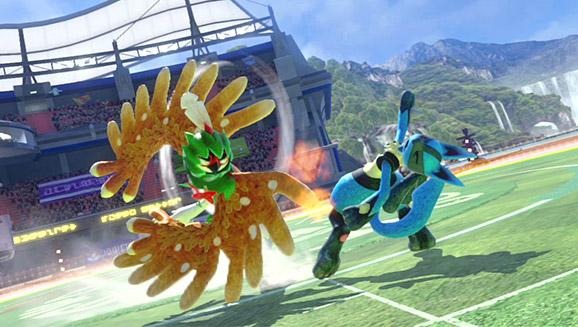Why Pokemon Continues To Catch All 'Em Hearts 20 Years Later
It is a franchise that is more than 20 years old and one that was aimed primarily at children. And yet when news of new Pokemon games for the Nintendo Switch and smartphones came out, the grownup populace of the Internet were buzzing about chattering about them. Very few games can claim to have spanned not just years but generations as well. What exactly has made Pokemon so successful? Probably by having some of the best psychologists working in The Pokemon Company.
Humans are natural hoarders
Almost all games, especially the particularly devious ones, are designed to appeal to some aspect of the human psyche. Particularly the ones that encourage you to return to the game, almost to the point of addiction. Pokemon, as it turns out, has hit the trifecta of such human urges.
Humans love to collect things almost by nature. Which is why qualities such as detachment and minimalism are so hard to come by. Pokemon is primarily a collecting game, where you scour the world for species you have yet to meet and fill up your Pokedex. The plot, while interesting, is mostly a device to encourage players to move. Otherwise they'd spend all their time trying to catch that perfect Pidgey.

(Image courtesy of Bulbapedia)
That's one aspect where Pokemon differs from most collecting games. There's still an element of personalization and randomness. Pokemon of the same species can turn out to have slightly different stats or levels and you might have to make a choice between that new level 25 Butterfree you just caught or the level 15 one you so painstakingly raised from a Caterpie.
I wanna be the very best
Humans are also a competitive bunch, which is where the levels and stats come into play. Some are more aggressive about it but almost anyone, with few exception, wouldn't want to pick the short straw. And Pokemon appeals to that competitive nature on more than just one level.
There is, of course, beating the game, which is often the easiest part. Even before leaderboards were a thing, Pokemon players were already comparing their Pokedex and teams, whether in person or online. And then there's the more direct form of competition, where you get to test your breeding skills against others.

Many games these days simply focus on that last kind of competition, putting PvP at the center of player-player interaction. It is perhaps a good thing that Pokemon is primarily a kids' game so that aggressive competition isn't put on a pedestal like it is today.
Red, Blue, Sun, and Moon
The difference that Pokemon makes even from day one is that it also put an emphasis on competition's twin: cooperation. Almost like the Sith, there are always two mainline Pokemon games released and the differences are more than just superficial. Neither game has the complete set of Pokemon for that generation to complete them, you'll need to actually trade with other players (or yourself, if you have two devices).
This practically enforces face to face contact with other players, which was already a radical concept back when Pokemon first launched. It ensured there will be some level of social interaction in an age where kids and players didn't have much access to the Internet. And, it turns out, people actually like to help each other when they feel they can make a difference.

Few games today have this element of long-lasting cooperation. You have raids and parties and 3v3/5v5 skirmishes, but you change members more often than you change your clothes. Recurring players may form bonds over time, but nothing beats looking at a piece of equipment or, in this case, a Pokemon, and seeing a reminder of that player who helped you complete your Pokedex.
Even a child gets it
Besides collection, competition, and cooperation, Pokemon also appeals to one other human desire: mastery. Combat in Pokemon revolve around a simple rock-paper-scissors mechanic and while later generations added dual-element species, the basics still remained the same from 1996 to the present. It was simple enough for a kid to understand but still had nuances that gave experts plenty of topics to discuss.
Humans like getting a sense of mastery, especially one that is hard-earned but not too hard. The mechanics are easy to understand but you will still have to make some hard decisions along the way.
Some games today, especially mobile ones, also have a rock-paper-scissors mechanic, but the exceptions often outnumber the rules. Considering the often fast-paced action, players are sometimes left with no choice but just brute force their way through a battle.
More than just a game
Pokemon has long ceased to be just a game. It's a brand that encompasses a game and everything else. It is one of the first few games that went beyond simply putting out a game. It had its own cartoon show that tied in with the game's overall world. There are merchandise, mascots, and more. More than just bringing in more revenue and reinforcing the brand, it also made players feel that their experience didn't stop at the game and that the game itself is but a part of a larger whole.
With #PokemonQuest and #PokemonLetsGo, there are so many new ways to explore the world of Pokémon! Trainers can look forward to even more with an all-new core series Pokémon RPG title in development for the second half of 2019! pic.twitter.com/d5uiIpenMI
— Pokémon (@Pokemon) May 30, 2018
The Pokemon Company has promised new core games next year. And, unless creativity suddenly runs dry, there will be more to come. Nearly reaching its 30th birthday, there are no signs that the Pokemon fever is ever going away. Especially when it can just as easily hook in new, younger players while giving veterans a nostalgia trip. All thanks to, for better or worse, its ability to pull at heartstrings and human nature.
